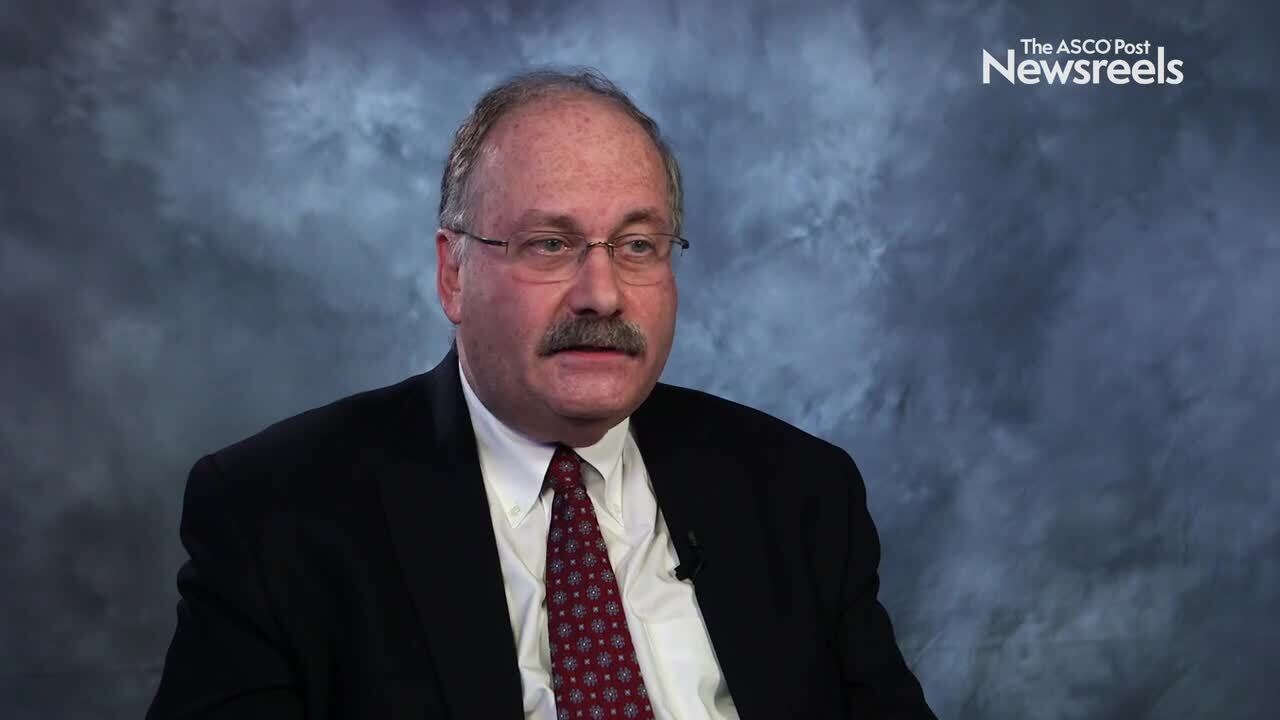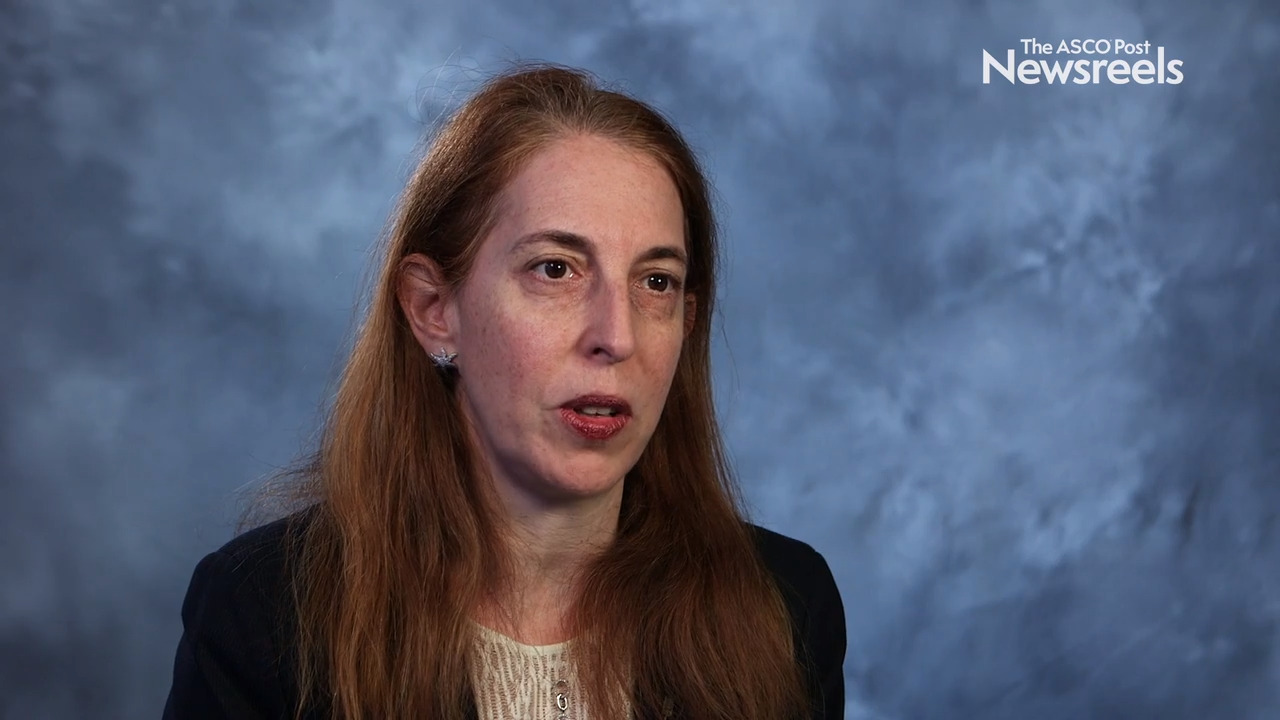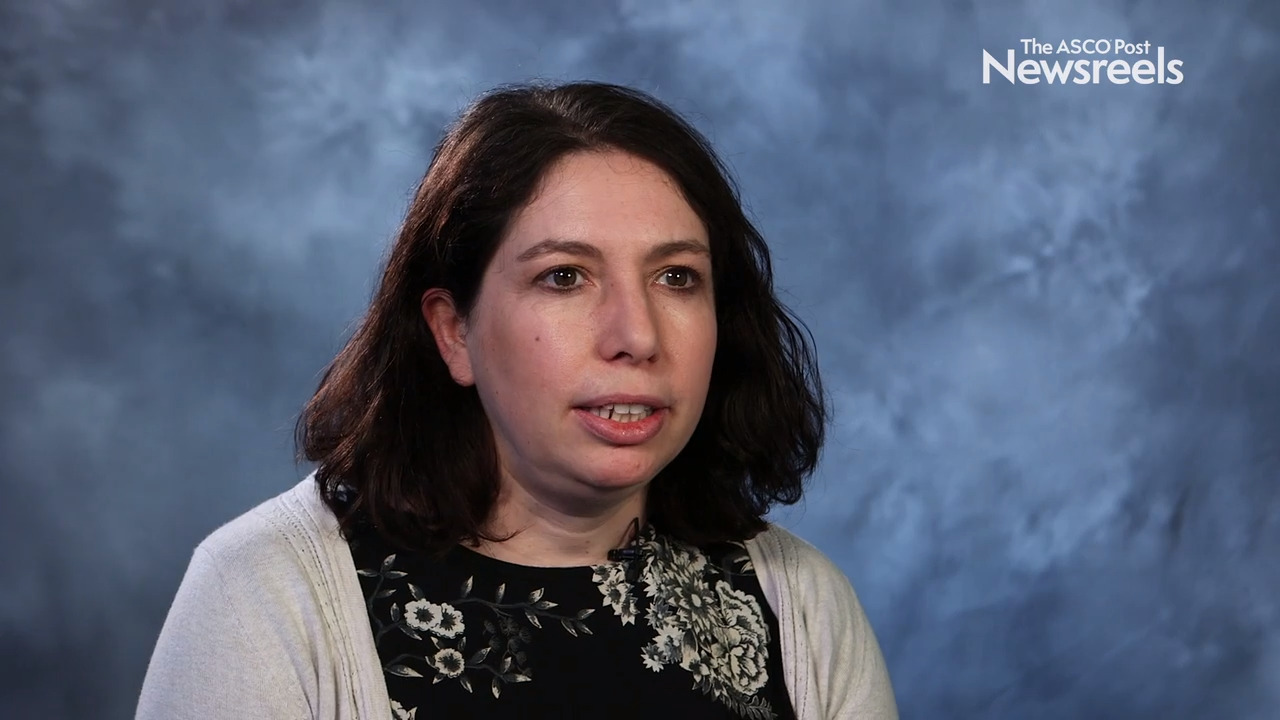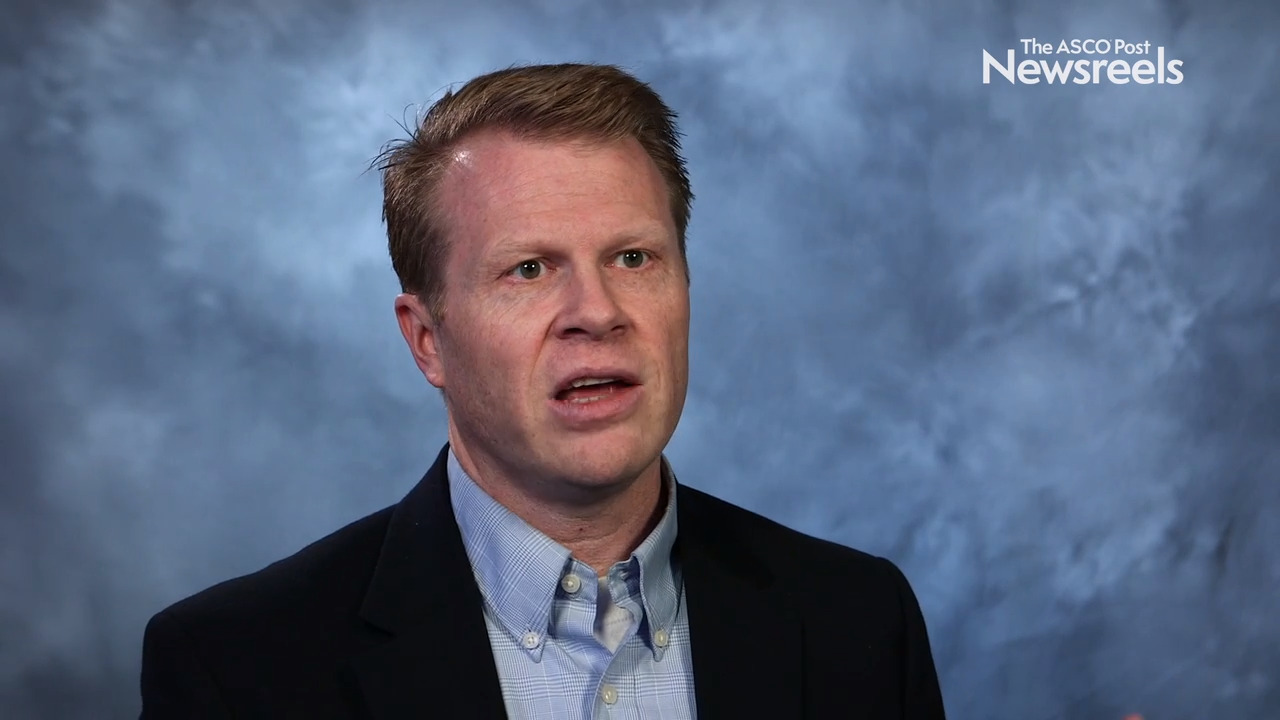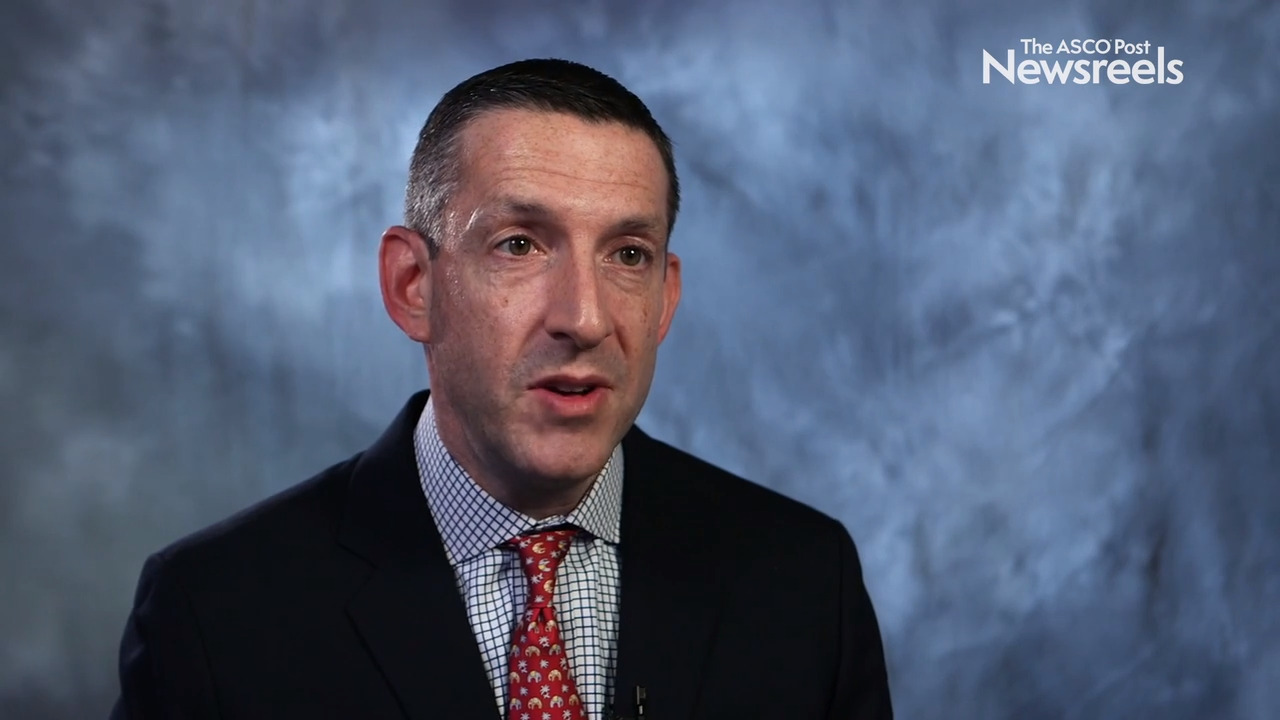David P. Steensma, MD, on Myeloid Neoplasms: Results From a First-in-Human Trial of a Splicing Modulator
2019 ASH Annual Meeting & Exposition
David P. Steensma, MD, of Dana-Farber Cancer Institute, discusses early study findings on H3B-8800, which decreased the need for red blood cell or platelet transfusion in 14% of patients. This splicing modulator, used in the trial to treat patients with hematologic malignancies, also showed safety, dose-dependent target engagement, and a predictable pharmacokinetic profile (Abstract 673).
Edward A. Stadtmauer, MD, of the University of Pennsylvania Abramson Cancer Center, discusses phase I results of immune cells, modified with CRISPR/Cas9 technology, and infused in three patients (two with multiple myeloma and one with sarcoma). Researchers observed the cells expand and bind to their tumor targets with no serious side effects (Abstract 49).
Catherine M. Diefenbach, MD, of the Perlmutter Cancer Center at NYU Langone, discusses a primary analysis of a phase Ib/II trial showing that the novel triplet combination of polatuzumab vedotin plus obinutuzumab/lenalidomide is safe and effective, with high complete response rates seen in a heavily pretreated and refractory population (Abstract 126).
The ASCO Post
Mhairi Copland, PhD, MB BChir, of the University of Glasgow, discusses results of a study on the combination of ponatinib and fludarabine, cytarabine, idarubicin, and G-CSF for patients with blast phase chronic myeloid leukemia, a rare complication with a poor outcome (Abstract 497).
Tait D. Shanafelt, MD, of Stanford University, discusses extended follow-up data that show ibrutinib plus rituximab improved clinical outcomes vs the standard therapy of fludarabine/cyclophosphamide/ rituximab in younger patients with previously untreated chronic lymphocytic leukemia (Abstract 33).
Mikkael A. Sekeres, MD, of the Cleveland Clinic, discusses results of a phase Ib study of glasdegib in combination with azacitidine, which showed activity in patients with untreated myelodysplastic syndromes, acute myeloid leukemia, and chronic myelomonocytic leukemia who are ineligible for intensive chemotherapy (Abstract 177).
